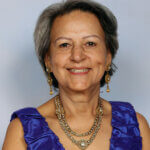Eighth Grade
Curriculum Guidelines – 8th Grade
English Language Arts
Mathematics
Social Studies
Science
Students in 6th, 7th, and 8th grades have eight different classes each day with a separate teacher for each subject. Furthermore, throughout the middle school years, teachers help students with social and organizational skills, in addition to the accelerated academic information. We have a multi-material approach to instruction that encourages group work, collaboration, and an experiential approach to instruction along with the traditional school program. In addition to regularly scheduled P.E., Spanish and computer classes, students choose between art, music, drama, speech, computer, and physical work out/study hall for elective classes two days per week. Students attend Spanish twice weekly, with one of the three sections of Spanish offered for those students who are Spanish speakers.
English
- Produce clear and coherent writing in which the development, organization, and style are appropriate to task, purpose, and audience.
- Apply the six traits of writing (Ideas, organization, conventions, voice, sentence fluency, word choice).
- Develop and strengthen writing as needed by planning, revising, editing, rewriting,
- Write narratives to develop real or imagined experiences or events using effective technique, relevant descriptive details, and well-structured event sequences.
- Write arguments to support claims with clear reasons and relevant evidence.
- Develop a research paper while accessing and using information from a variety of resources, generating questions to expand or narrow research, discerning fact from opinion, compiling accurate notes, practicing the skill of paraphrasing/summarizing, and citing sources correctly.
- Apply grammar rules when writing focusing on sentence structure, punctuation, parts of speech.
Write routinely over extended time frames (research, reflection, and revision) and shorter time frames (a single setting or a day or two) for a range of discipline-specific tasks, purposes, and audiences.
Literature
- Interpret, analyze, and evaluate major literary works studying plot, characters, theme, setting, conflict, point of view.
- Using the following reading strategies to interpret text: visualize, predict, summarize, connect, analyze, question, clarify, evaluate and sequence.
- Read from a variety of genres while maintaining active reading notes, annotating text, engaging in both informal and formal discussions, responding to various writing prompts and studying vocabulary.
- Cite the textual evidence that most strongly supports an analysis of what the text says explicitly as well as inferences drawn from the text.
- Determine the meaning of words and phrases as they are used in a text, including figurative, connotative, and technical meanings; analyze the impact of specific word choices on meaning and tone, including analogies or allusions to other texts.
- Distinguish between fact, opinion, and reasoned argument; determine point of view and purpose; recognize stereotypes, bias, and propaganda techniques; identify message and target audience of narrative and documents to determine credibility and authenticity.
- Experience poetry through listening, reading, research, writing, and speaking.
- Read and comprehend grade 8 complex literature proficiently.
Mathematics
- Solve multi-step equations
- Understand functions represent dependence of one quantity on another
- Graph functions and determine their domain and range and tell if the function should be discrete or continuous
- Express linear functions in multiple ways
- Understand the meaning of slope, intercepts, and the meaning of zeros
- Write and solve system of equations
- Apply rules of exponents to simplify expressions
- Understand, graph, and solve quadratic functions
Science
- The eighth grade science program is an introductory to Chemistry (Atomic Structure, the Periodic Table, Solutions, Acids, Bases, Chemical bonds and reactions, Carbon Chemistry and Nuclear Chemistry.)
Understanding of the relationship among the earth, space, atmosphere and humans effect on these items.
Social Studies
- Develop the research skills needed to critically analyze historical ideas, arguments, and evidence in order to draw conclusions and support opinions.
- Write coherent, well organized, and persuasive essays and support them with effective use of primary and secondary historical source documents.
- Appreciate the divergent experiences, ambitions, and ideals of the different peoples who inhabited America before 1877.
- Consider the influences of economics, politics, ideology, race, ethnicity, class, gender, religion, and geography on the development of The United States of America.
- Understand the rights, roles, and responsibilities of a citizen of the United States of America
Religion
- The eighth-grade religion program is devoted to the study of God’s faithful love as it is revealed in the Church founded by Jesus Christ. The Church Then and Now is designed to help young teens grow in their knowledge and love of the Church.
- Study God’s Word and apply the Word to our lives.
- Memorize Scripture.
- Reflect on family life and what that means for our lives now, and for the future.
- Review and learn Catholic Catechism basic to our Catholic faith.
- Practice the discipline of reflection with journal writing and composing prayers.
- Learn basic history of the Church…including dates, events, Church Councils, and key people who have influenced the Church.
- Ultimate goal: to grow in our knowledge and faith as a Catholic Christian.
Spanish
- Covers the first half of Spanish 2.
- In depth review of vocabulary and grammar concepts covered in Spanish 1.
- Vocabulary and grammar concepts are expanded upon.
- Learn strategies to assist in building vocabulary.
- Continue to build upon the foundation of oral and written communication in alignment with the national standards set by ACTFL (American Council on the Teaching of Foreign Languages).
- Develop cultural awareness as we explore Hispanic Countries and their culture.
- Make connections between Spanish and other subjects to enhance their knowledge.





